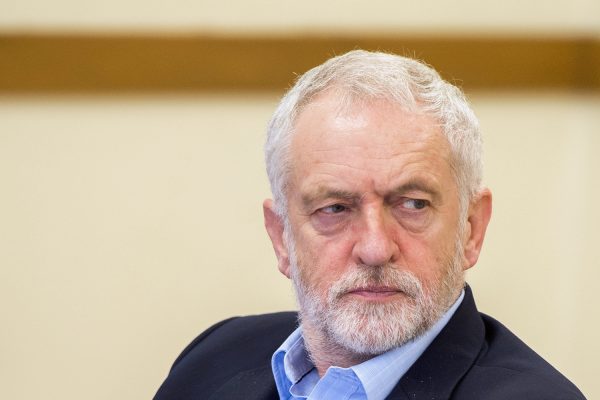
Few British voters outside the Conservative Party trust Prime Minister Boris Johnson, a one-time liberal who opportunistically embraced the reactionary cause of Brexit to advance his own political career and who shamefully besmirched Parliament to get his preferred version of Brexit through.
And still he is projected to win the election in December with support for the Conservatives trending toward 45 percent. Labour, the second largest party, is at 25-30 percent in the polls.
The reason is Jeremy Corbyn. He has pulled Labour so far to the left that middle-income voters no longer trust it.
Corbyn’s net approval rating is the lowest of any opposition leader since counting began in 1977. Just 16 percent of British voters have faith in him.
Economic policy
The main reason is economic policy. Labour’s manifesto contains such far-reaching proposals as:
- Nationalization of broadband Internet, electricity distribution, mail, railways and water.
- Raising the hourly minimum wage from £8.21 to £10.
- Introduction of a four-day workweek.
- Enforced transfer of 10 percent of shares in every big company to workers.
- Sweeping reform of tenant rights and an expansion in subsidized housing.
- Universal child care.
To pay for these policies, and more, which would add at least £80 billion to £840 billion in yearly public spending — an increase the size of Greece’s entire national budget — Labour calls for higher taxes on big businesses and the wealthy as well as new borrowing.
And that’s just a start. The party is also looking into capping executive pay, making bonuses illegal, raising taxes on land and rolling out a universal basic income.
Foreign policy
Then there’s Labour’s nonsensical position on Brexit, which is to seek a better withdrawal treaty with the EU only to campaign against it in a second referendum.
Corbyn has said little on how he would engage the rest of the world beyond paeans to multilateralism and the UN, but his history suggests a radical shift in British foreign policy.
- Corbyn called for unilateral nuclear disarmament at the height of the Cold War and has promised that, as prime minister, he would never authorize the use of nuclear weapons.
- He opposed the 1982 Falklands War as a “Tory plot” and as recently as 2017 called for a “negotiated settlement” with Argentina, which still claims the island group in the South Atlantic despite its inhabitants’ nearly unanimous desire to remain British.
- During the Troubles in Northern Ireland, when the British center-left allied with the pro-unification but anti-terrorist Social Democratic and Labour Party, Corbyn instead backed Sinn Féin and the Provisional IRA, which endorsed violence to bring about a united Ireland.
- He opposed NATO airstrikes against Serbia in 1999 and refused to believe that Slobodan Milošević was attempting a genocide against ethnic Albanians in Kosovo.
- He has called for NATO to be disbanded and blamed its “belligerence” (in a column for the communist Morning Star) for provoking Russia, accepting the Russian premise that countries in Central and Eastern European should not have been free to join the alliance.
- As a parliamentarian, Corbyn hosted representatives of Hamas and Hezbollah, whom he praised for their commitment to “peace and social justice”, but he never reached out to Israeli or Jewish groups.
- He supported Hugo Chávez and has made excuses for Nicolás Maduro, blaming “outside interference” for the economic collapse in Venezuela, which is entirely the fault of the socialist regime.
- On Iranian state television, of all places, Corbyn criticized the killing of Osama bin Laden as a “tragedy”, lamenting that no attempt had been made to arrest the terrorist leader and put him on trial.
- Under his leadership, Labour voted against bombing the self-declared Islamic State in Syria even after the group had claimed responsibility for killing more than 130 people in Paris.
- Corbyn has denounced the removal of Evo Morales in Bolivia as a “coup“, no matter that the left-wing populist served an unconstitutional third term as president and was caught rigging the election in his bid to serve an unconstitutional fourth term.
Losing streak
It’s no wonder Labour has lost nearly every election since Corbyn became leader in 2015.
- In local elections in 2016, Labour lost eighteen out of 1,344 council seats.
- In local elections in 2017, Labour lost 382 out of 1,534 council seats and control of seven local councils.
- In the 2017 general election, Labour gained almost 10 points, but it still placed a distant second to the Conservatives under Britain’s first-past-the-post system with 262 against 317 seats in the House of Commons.
- In local elections in 2018, Labour gained 79 council seats but failed to unseat the Conservatives anywhere.
- In local elections this year, Labour lost 84 out of 2,105 council seats and control of six more local councils.
- In the European elections, Labour went down 11 point and lost half its seats in the European Parliament.
